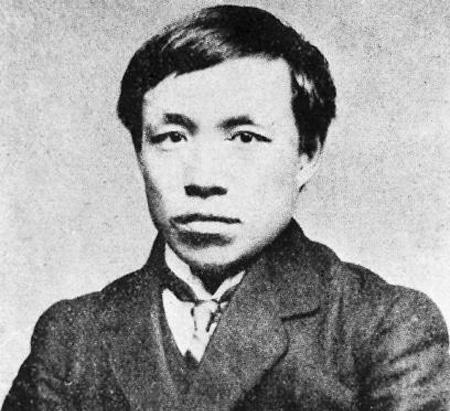On the night of October 10, 1911, the rumbling cannons in Wuchang Ended 296 years of qing dynasty rule, and the Wuchang Uprising became a major event in Chinese history.
So, who was the commander-in-chief of this Wuchang uprising? His name was Jiang Yiwu, and he was the only one whom Sun Yat-sen called "the founding father of the country."

Jiang Yiwu was born in 1884 in Lizhou, Hunan, although he grew up in a commoner family, his father understood the importance of reading, so Jiang Yiwu received a good education from an early age.
The first time in Jiang Yiwu's life he quarreled with his father was because of the problem of the imperial examination. In 1902, his father asked him to take the imperial examination, but Jiang Yiwu resolutely refused to participate, saying that this sick imperial court should have died a long time ago, so why should he participate in its scientific examination? For this reason, he and his father had an argument for the first time.
It is worth mentioning that although Jiang Yiwu did not participate in the scientific examination in the end, his learning ability was soon demonstrated, and in 1904, the Hunan West Road Public Normal School was established, enrolling students in 30 counties in Hunan and the nearby provinces, and Jiang Yiwu was admitted with the first place.
At this school, Jiang Yiwu became acquainted with Lin Boqu, the elder of our party, and secretly read progressive books and periodicals together, such as "Turning Back" and "Alarm Clock", which made his revolutionary thinking more and more mature. In the school, Jiang Yiwu took the lead in cutting off his braids and wore Western student clothes, which was regarded as an outlier by everyone.
In 1904, Jiang Yiwu assisted Song Jiaoren in preparing for the Changsha Uprising. However, the uprising failed because of the leak of secrets, and Jiang Yiwu came to Shanghai to continue the revolution, where he joined the League and founded the revolutionary journal Jingye Xunbao to spread revolutionary ideas.
In 1909, the situation in Shanghai was very tense, the "Jingye Xunbao" was forced to close, and Jiang Yiwu also went to Wuhan.
After coming to Wuhan, Jiang Yiwu continued to engage in revolutionary activities, joined the New Army, and secretly founded the "Literary Society". The name appears to be a literary organization, but in fact it is a military organization, with presidents, vice presidents, chiefs of staff, and so on. Later, Jiang Yiwu set up such organizations in all the new armies in Hubei, and all towns and associations had backbone members, reaching more than 3,000 people, and they already had the conditions for an uprising.
On September 24, 1911, Jiang Yiwu led the backbone members of the "Literary Society" and the backbone of another revolutionary organization in Wuchang, the "Communist Progressive Association", to hold a joint meeting to discuss the uprising, and Jiang Yiwu was elected as the commander-in-chief of the Wuchang Uprising.
On October 9, the plan of the Wuchang Uprising was accidentally leaked, and Jiang Yiwu immediately decided to hold the uprising in advance, so the vigorous Wuchang Uprising broke out and became a major landmark event in China's modern history.
After the success of the Wuchang Uprising, Jiang Yiwu traveled to Hankou and Hanyang, participated in the activities as a supervisor, and later served as the commander-in-chief of the Defending Army, commanding the rebel troops.
After Yuan Shikai stole the fruits of the victory of the revolution, he appointed Jiang Yiwu as a senior military adviser to the Provisional Grand Presidential Office and twice awarded him the rank of general of the army, but Jiang Yiwu adopted an attitude of non-cooperation and insisted on not resigning.
After the assassination of Song Jiaoren, Jiang Yiwu participated in the second revolution and fought against Yuan Shikai by force. After the defeat, Jiang Yiwu was wanted by Yuan Shikai and prepared to travel from Guilin to Hong Kong, but unfortunately was arrested and finally executed by Yuan Shikai's orders.
On September 9, 1913, Jiang Yiwu was escorted to the execution ground, and before the uprising, Jiang Yiwu spoke passionately for the crowd that came to him, and finally sat calmly on the red carpet, feeling righteous, only 29 years old.
In 1921, when Sun Yat-sen was supervising the Northern Expedition, he made a special trip to the "Jiang Gongting" in Yuelu Mountain, Hunan Province, to worship Jiang Yiwu, and personally wrote "The Founding Father Of The Founding Father, Mr. Jiang Yiwu on righteousness", and commented: "Xinhai Wuchang made difficulties, with public merit as the crown." ”
In Jiang Yiwu's hometown of Li County, Hunan, Yiwu Park, Yiwu Avenue, and Yiwu Middle School were also set up to commemorate this epoch-making revolutionary martyr.